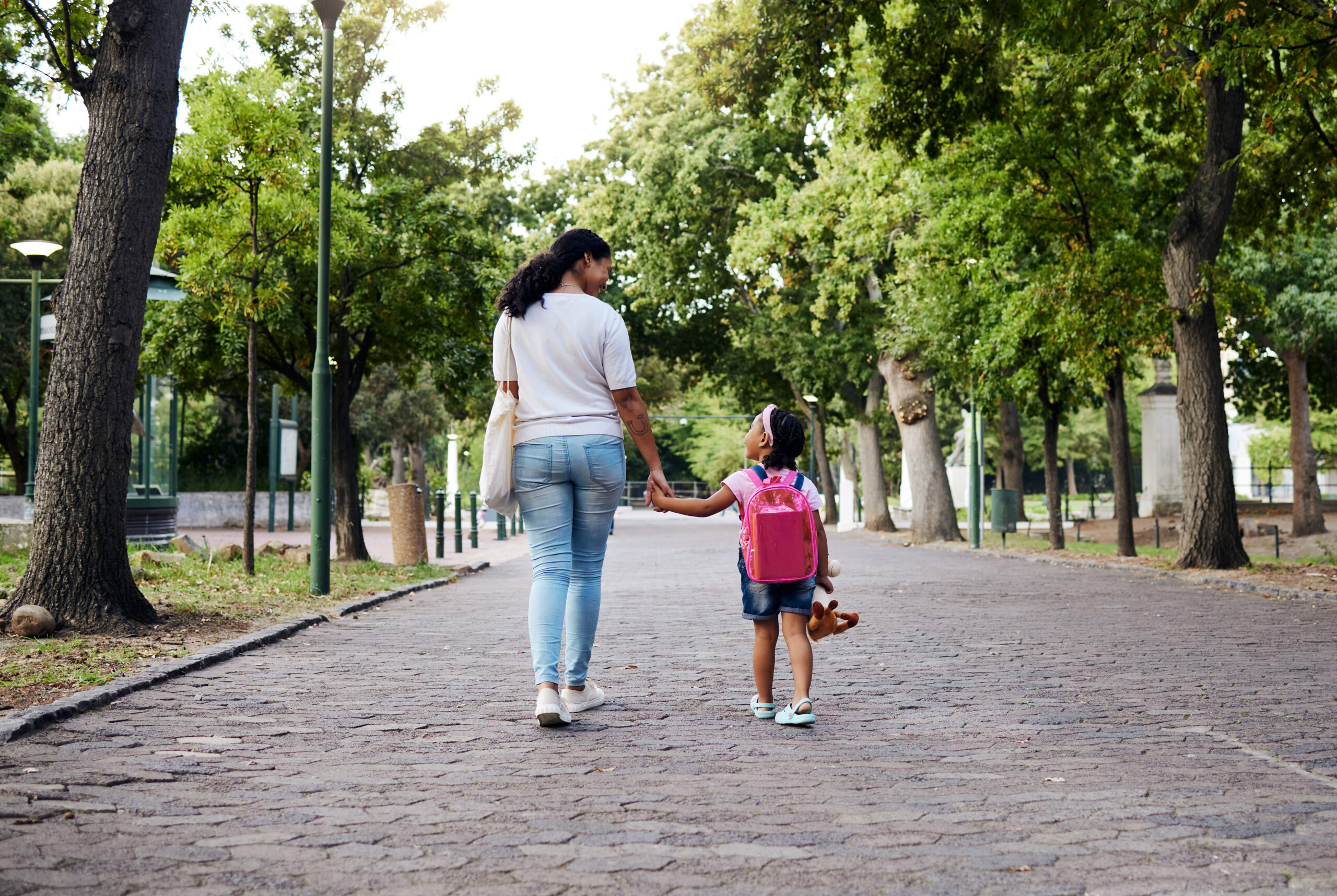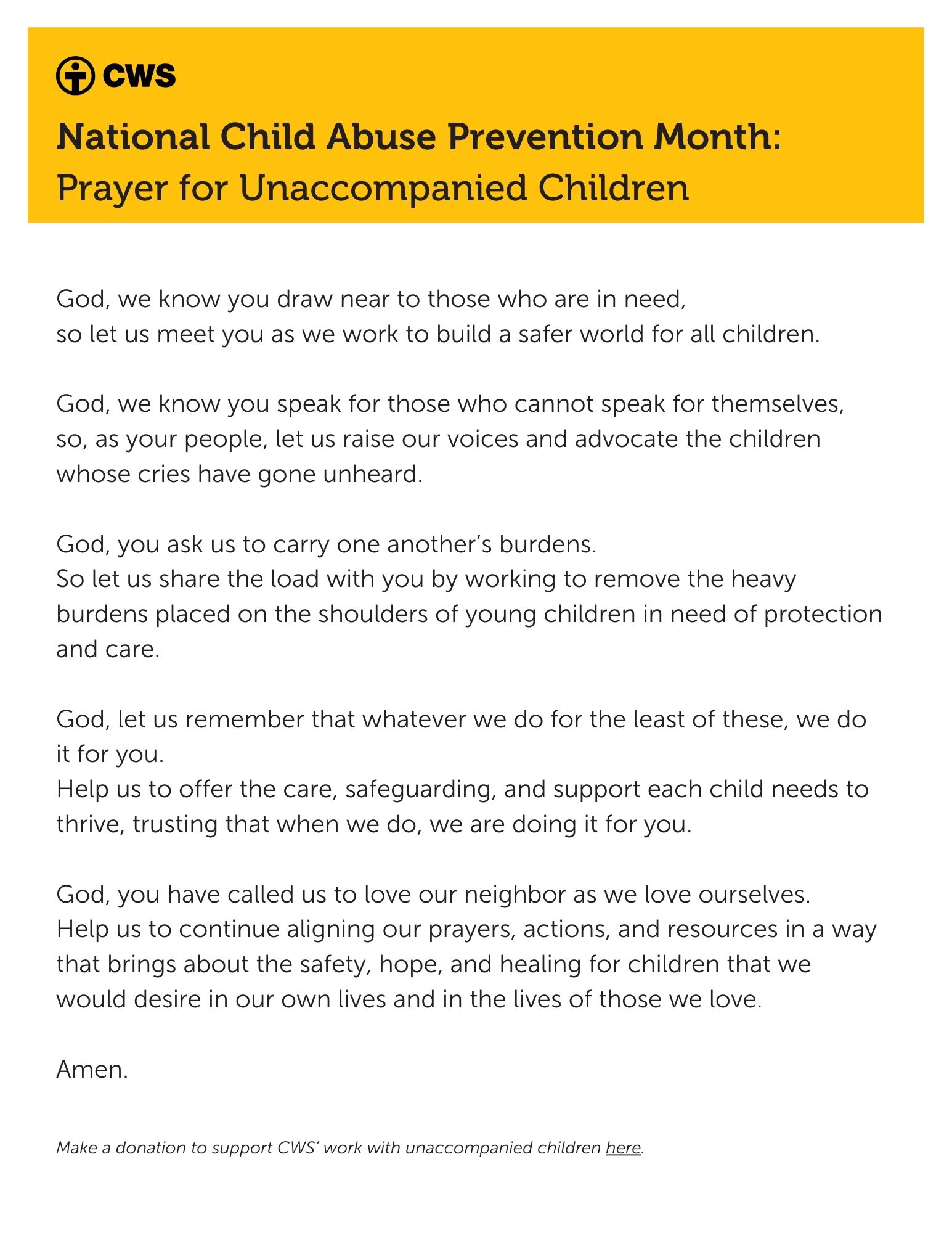Every year, tens of thousands of unaccompanied children seek safety in the United States, often after enduring dangerous journeys. They hope for healing and a safe childhood here, but there are many challenges that stand in the way. During National Child Abuse Prevention Month and beyond, CWS is committed to ensuring these children have the care, protection and advocacy they need.
Feeling Untethered in Childhood
 Children who have been separated from their families during periods of crisis know what it feels like to have the ground pulled out from beneath their feet. They’ve lost their primary sources of care and protection during moments when they need them most.
Children who have been separated from their families during periods of crisis know what it feels like to have the ground pulled out from beneath their feet. They’ve lost their primary sources of care and protection during moments when they need them most.
Each year, tens of thousands of unaccompanied children seek refuge in the United States. They arrive afraid, vulnerable and uncertain for what the future holds. One unaccompanied child, after traveling more than 2,000 miles—many of which were on foot—described the fear of arriving in a new home without a tether to hold onto.
As we mark National Child Abuse Prevention Month, this child’s experience—and thousands like them—remind us all how important it is to anchor every child with supportive, nurturing home alongside their loved ones.
Regardless of their circumstances or where they were born, children are children. They need to live in safety without fear of having nothing to grab onto. But those who have been separated from their loved ones face danger, threats of exploitation and significant daily uncertainties that can shake their young identities to their core. Ensuring children have the opportunity to live in safety with their loved ones provides them with a stable support system and lowers the risk of abuse and neglect.
Creating Belonging and Protection After Arrival
CWS walks alongside unaccompanied children upon their arrival in the United States. We help connect them with loved ones, support children and their caregivers as they adjust to their new home, foster community connections and link them to vital resources—ensuring their voices are heard and their futures are bright. Through legal support, we ensure children understand their rights and have someone advocating for their safety and best interests along every step of the way.
Our work goes beyond individual families—we collaborate with hundreds of organizations, schools, hospitals and faith partners to help build communities where children are safe, valued and protected. These partnerships equip local networks with the skills and knowledge to prioritize protection and child safeguarding practices. In 2024, CWS supported more than 25,000 unaccompanied children with legal support, mental health care, education, healthcare and protection.
Protecting Children Can’t Wait

Participate in National Child Abuse Prevention Month and Download a Prayer for Unaccompanied Children
The journey for unaccompanied children is already dangerous. Now, with the Trump administration’s near-total termination of work on its Unaccompanied Children Program, vulnerable children are even more at-risk. For more than 26,000 children who received legal representation through federal funding, the hope of a stable, safer future is uncertain.
The year ahead will be a difficult one for unaccompanied children—not only because of the miles they’ve traveled, but because of the additional challenges they now face. That’s why connecting children with supportive and loving homes alongside their families in the United States isn’t just helpful—it’s life-saving.
These children deserve our attention. They deserve care. They need something to hold onto. Even with a challenging road ahead, CWS will continue to extend a hand to help children stand steady again. Will you join us?
Make a donation to support CWS’ work with unaccompanied children here. Take action by telling Congress to restore vital services for unaccompanied children and push back on rapid deportations. Sign up for our daily State of Play to stay engaged and up-to-date on the Trump administration’s latest developments—including the recent indefinite refugee ban, stop work orders and failure to reimburse resettlement agencies—and ways to support impacted communities.
To protect the anonymity of our clients, a stock image has been used in this story.
